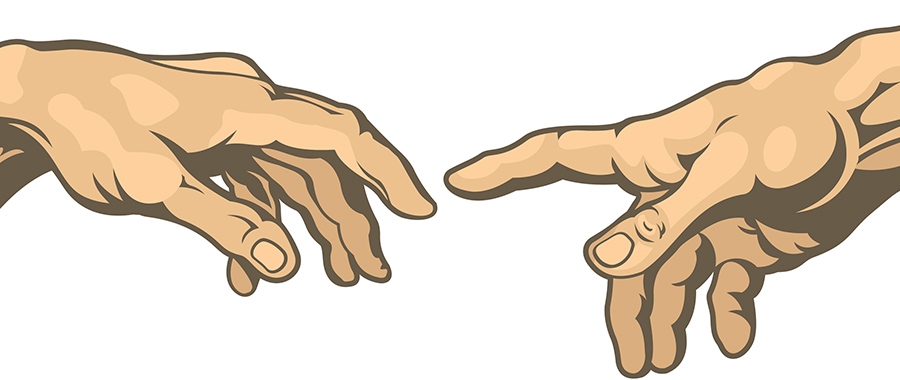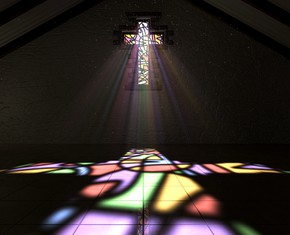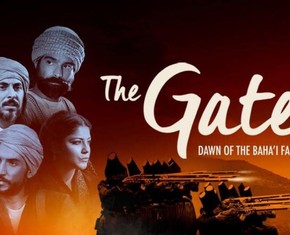The views expressed in our content reflect individual perspectives and do not represent the authoritative views of the Baha'i Faith.
Webster’s dictionary defines a covenant as “a contract drawn up by deed,” but what does that mean in religious or theological terms?
When I first investigated the Baha’i Faith, I was openly hostile to it. My journey to belief, with its multiple layers of inquiry, is probably why Baha’u’llah’s mystical The Seven Valleys and the Four Valleys is my most beloved of his writings. But beyond studying the life and writings of Baha’u’llah and Abdu’l-Baha, and comparing and contrasting those with my own faith experience as a believer in Christ, one thing struck me as astonishingly unique and revolutionary about the Faith of Baha’u’llah: the Baha’i administrative order and the Baha’i Covenant that created it.
You see, the Baha’i Faith has no clergy. Its administrative order, comprised of democratically-elected institutions at the local, national and international levels, makes decisions that lead Baha’i communities in a unique and unprecedented way—by involving every believer.
It was unlike anything I’d ever seen or heard of or dreamed possible. I’ll describe that administrative order to the best of my ability in future installments of this series, but first I’d like to explore its most salient feature: its foundation in a Covenant between God, Baha’u’llah, the Baha’is, and the entirety of humankind.
As a Christian when I first discovered the Baha’i teachings, I already understood the concept of a covenant, of course. The scripture I was most familiar with—the Bible—framed our relationship with God in terms of a covenant, in which Noah’s rainbow, Moses’ ark, and the Christian rituals of Baptism and the Eucharist were symbols. But the Baha’i Faith called upon me to look at this concept in a new way.
In dictionary-speak, a religious covenant is ”an agreement that brings about a relationship of commitment between God and his people.” Hence, there are two parties to this Covenant: God and humanity. Each party has duties in relation to this covenant; they each make certain promises. God promises eternal guidance and enriched spiritual existence; believers pledge obedience to God’s Word.
This is not an arbitrary arrangement. As Baha’u’llah notes:
They whom God hath endued with insight will readily recognize that the precepts laid down by God constitute the highest means for the maintenance of order in the world and the security of its peoples. – Baha’u’llah, Gleanings from the Writings of Baha’u’llah, p. 331.
As I alluded to above, the idea of a covenant between God and humanity is codified in scripture going back millennia. Abdu’l-Baha, the eldest son of Baha’u’llah and the center of his Covenant, described it like this:
His Holiness Abraham, on Him be peace, made a covenant concerning His Holiness Moses and gave the glad-tidings of His coming. His Holiness Moses made a covenant concerning the Promised One, i.e. His Holiness Christ, and announced the good news of His Manifestation to the world. His Holiness Christ made a covenant concerning the Paraclete and gave the tidings of His coming. His Holiness the Prophet Muhammad made a covenant concerning His Holiness the Bab … The Bab made a Covenant concerning the Blessed Beauty of Baha’u’llah and gave the glad-tidings of His coming, for the Blessed Beauty was the One promised by His Holiness the Bab. Baha’u’llah made a covenant concerning a promised One who will become manifest after one thousand or thousands of years. – Abdu’l-Baha, Baha’i World Faith, p. 358.
Notice that Abdu’l-Baha refers specifically to God’s side of the Covenant—that He would always guide mankind. The Baha’i teachings describe how each educator and guider of humanity makes a covenant with the one who will arise after him:
The Bearers of the Trust of God are made manifest unto the peoples of the earth as the Exponents of a new Cause and the Revealers of a new Message. Inasmuch as these Birds of the celestial Throne are all sent down from the heaven of the Will of God, and as they all arise to proclaim His irresistible Faith, they, therefore, are regarded as one soul and the same person. For they all drink from the one Cup of the love of God, and all partake of the fruit of the same Tree of Oneness. – Baha’u’llah, Gleanings from the Writings of Baha’u’llah, p. 50.
From Abraham to Krishna, Zoroaster to Buddha, Christ to Muhammad to Baha’u’llah, each manifestation of God (as Baha’u’llah calls them), forms part of a promised and covenanted bridge between us and God that is never withdrawn. Every one of these avatars or universal educators or prophets invariably offered the eternal life of the spirit in return for humanity learning to love one another.
In the next essay in this series, I’d like to explore Baha’u’llah’s covenant and how it forms the spiritual foundation of the Baha’i administrative order.
















Comments
Sign in or create an account
Continue with Googleor